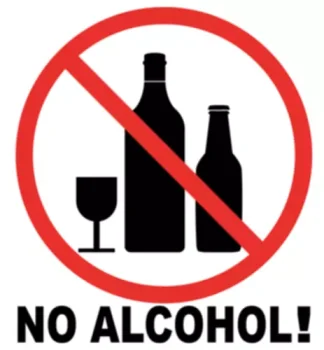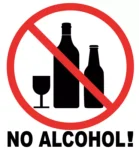
Understanding your drinking patterns empowers you to take proactive steps to prevent boredom drinking and stay on track with your goals. You can use this knowledge to create a personalized plan for overcoming boredom drinking and maintaining a sober lifestyle. Self-awareness and reflection are essential in identifying triggers for boredom drinking. By recognizing your emotions and thought patterns, you can uncover the triggers for boredom drinking, empowering you to make positive changes in your life. Journaling, self-reflection, and mindfulness can help you gain an understanding of your triggers for boredom drinking, enabling you to take proactive steps to prevent boredom drinking and stay sober.
Sometimes being sober is boring because your life revolves around alcohol.
Once you find that middle ground, you can continue to enjoy your favorite drinks without jeopardizing your health, safety, or sense of well-being. When you quit drinking alcohol, there isn’t any way around feeling like you’re missing something. You’re afraid that if you stop drinking, you’ll miss out on a great social life. Instead of worrying that people will leave you behind for your bad behavior, you’re afraid that people will do it because now you seem too good.
- Mindfulness practices and stress management techniques can empower you to cope with boredom and negative emotions without turning to alcohol.
- Are you tired of drinking out of boredom and ready to embrace a sober life in 2024?
Be mindful of your friends’ drinking habits
- In certain situations, being bored too often may have detrimental health effects, such as increased rates of depression and altered eating habits (1, 28).
- Your role is simply to remind them of commitments they made and offer small nudges in the right direction.
For example, you would experience cognitive dissonance if you are a daily drinker and, at the same time, believe that alcohol is bad for your health and you should stop drinking. This withdrawal can be physical, mental, or psychological; your level of alcohol dependence will determine the type and severity of your withdrawal symptoms. Fortunately, there aren’t any alcohol withdrawal symptoms that are life-threatening or even need medical supervision.

steps to quit drinking on your own

If you are looking for treatment for substance abuse or addiction, you’re not alone—we’re here to support you every step of the way. That said, If you’ve been drinking excessively, then stopping drinking cold turkey can lead to withdrawal symptoms. If you feel comfortable doing so, discuss your challenges with your primary healthcare professional. Finding a therapist can also be a great starting point if you’re uncomfortable opening up to your healthcare professional. Maybe you’ve never been interested in logging your innermost thoughts, but journaling can be a great tool to track your feelings as you work on quitting alcohol. By avoiding alcohol, you’re taking a big step toward improving physical health.

Let’s address another reason life without alcohol feels boring. If you’ve created an entire social life around drinking, it is natural to be afraid of life without it. Eating when drinking out of boredom you’re bored can turn into an unhealthy habit that is hard to break. No matter how you choose to support your loved one’s efforts to stop binge drinking, remember you’re not their therapist. You also can’t be expected to constantly monitor their decisions.

I personally used to worry that I wouldn’t be strong enough to stay sober. Sometimes a quick 10–20-minute walk is all it takes to recenter yourself and forget about the urge to snack out of boredom. Eating in front of a screen while you’re bored can influence you to overeat when you aren’t even hungry. Here are a few specific ways you can tailor your environment to discourage yourself from boredom eating when the urge strikes. When your body is physically hungry and in need of calories for energy, you may notice signs like your stomach growling, a headache, and feelings of weakness or fatigue. Being perceptive of your specific hunger and fullness signs may be one of the most effective ways to determine whether you’re hungry or bored.
- Probably not if you consider yourself an alcoholic – in which case going sober is probably your best course of action.
- This is because boredom can arise due to not knowing how to monitor and regulate thoughts and emotions, being prone to distraction or mindlessness, and generally feeling disconnected from ourselves.
- Some alternative activities to consider include physical exercise and outdoor activities, creative pursuits and learning new skills, and volunteering and community involvement.
- At first glance, this option can feel quite threatening.
- A diet that leaves you feeling full and satisfied over the course of the day leaves less room for wondering about whether you should have a snack when you’re bored.
It’s hard to fill that time, especially when dealing with alcohol cravings and triggers. Serotonin is a neurotransmitter responsible for feelings of happiness, well-being, and pleasure. It’s also responsible for moderating moods and emotions. Serotonin depletion can cause major mood swings and feelings of sadness, anxiety, and irritability. The treatment is being made available through a collaboration between NHS England and pharmaceutical company Teva UK, who have agreed to provide a new generic version of the treatment to the NHS.
If you’re not able to take a walk, you might find it helpful to take a few minutes to stretch or do breathing exercises. You may eat simply as a way to escape the regular routines of the day (38, 39). Some studies have found that people tend to eat more than they otherwise would when they’re distracted or in front of a screen, such as a TV or computer (35, 36, 37). Researchers know that your emotions and mood often influence when, what, and how much you eat (20, 21). Addiction is a progressive disease; it will only get worse the longer it goes untreated.



